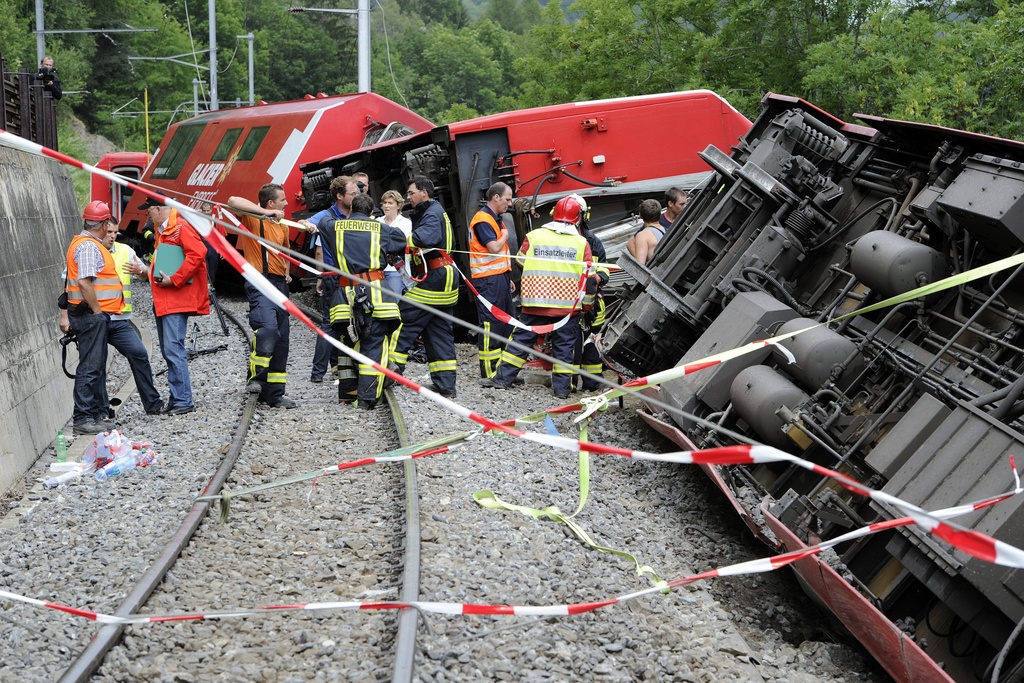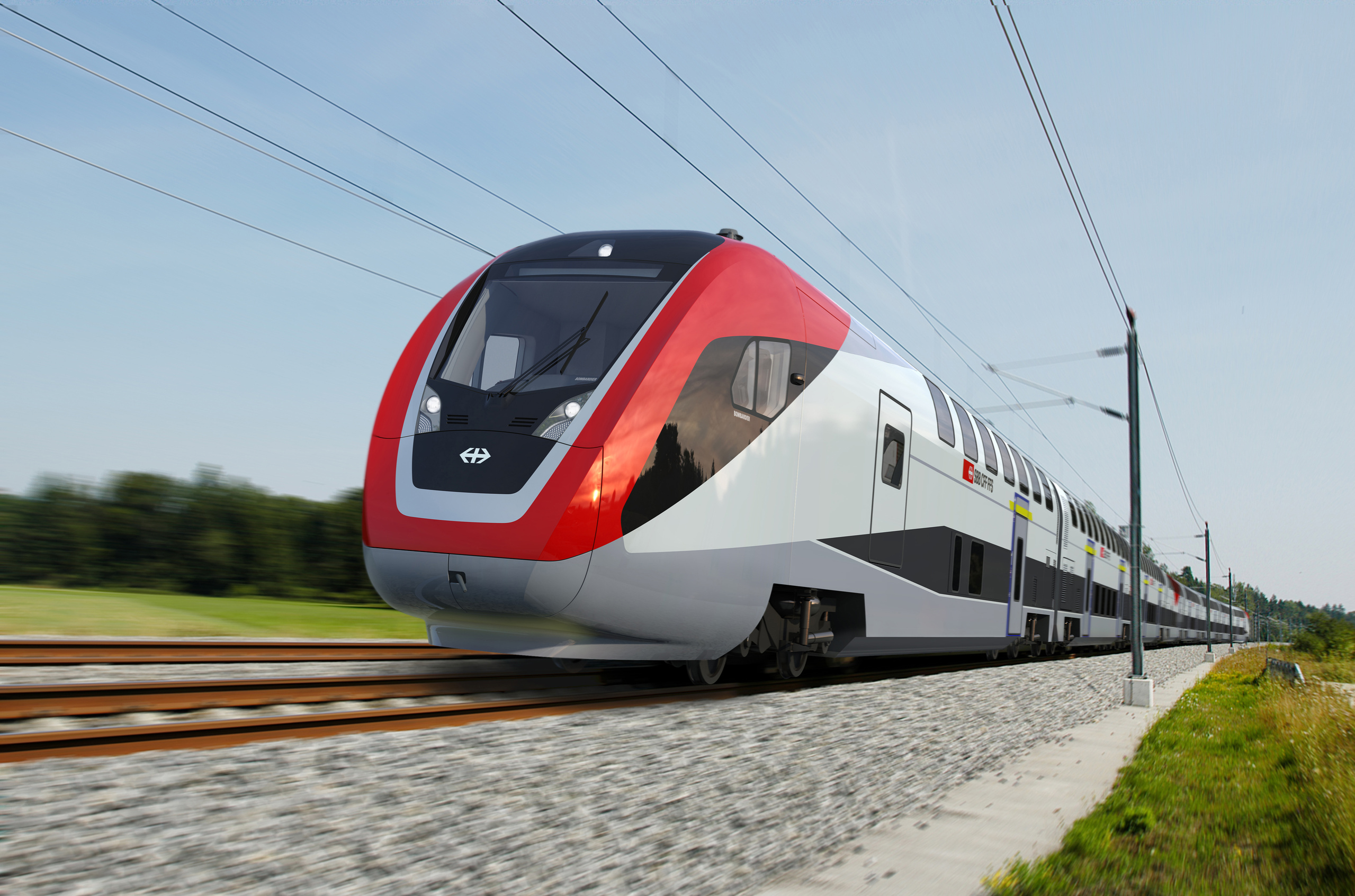One dead, dozens injured in train crash

One person has died and 42 were injured after a popular tourist train, the Glacier Express, derailed in the Alps on Friday.
The cause of the accident is not yet known. The last three carriages of the train, which was travelling between Lax and Fiesch in canton Valais, came off the track around 12pm near a viaduct in the Goms Valley.
Passengers on the train told Swiss public television that they heard a loud bang and felt intense vibrations as the carriages derailed in a gentle curve with a slight incline. Two carriages tipped over while another derailed but remained upright.
Rescue workers, including as many as seven helicopter crews, 15 doctors, several dozen firemen, paramedics and police officers were on the scene. Police said up to 12 people were seriously injured.
Valais police said most of the passengers in the overturned carriages were Japanese. A 64-year-old Japanese woman is known to have died in the accident.
210 people onboard
“We have to expect that the train was quite full because it’s the height of the tourist season,” Peter Abgottspon, a reporter on site with Radio Rottu, a regional broadcaster, told swissinfo.ch. “The Glacier Express train is always quite full at this time of year.”
There were about 210 people on the train, a railway spokesman said.
The Fiesch fire chief told a media conference that rescuers had to use hydraulic equipment to free trapped passengers. Those who were lightly injured or escaped unscathed were taken to Fiesch by bus.
Rail traffic between Lax and Fiesch would remain closed until Sunday, authorities said.
Rare
Rail interruptions, let alone accidents, are rare in Switzerland. The Glacier Express, dubbed the “slowest express train in the world”, is known as much for its majestic mountain climbs as for its pedestrian speed of 30km/h on average.
The 80-year-old service runs several times a day all year round, carrying some 250,000 passengers annually.
It starts in Zermatt, at the base of Switzerland’s iconic Matterhorn mountain, and rumbles through some of the country’s most spectacular alpine scenery. Train carriages often have special large windows that sweep high onto the roof so tourists can take in the mountain views. Some of those windows shattered during the accident and caused injuries.
After 7.5 hours, 291 bridges and 91 tunnels, the route ends in the resort of St Moritz.
The last time Switzerland had a fatal train crash was in 2006, when three railway workers were killed after their runaway train travelled for more than 30km with no brakes and slammed into another train near Thun, south of the Swiss capital Bern.
That was the worst railway accident since 1994, when a crane on a maintenance train swung into an express train, killing nine people.
Federal experts are investigating possible causes for Friday’s accident.
swissinfo.ch and agencies
Police have set up a helpline for victim’s family members to get more information: +41 (0) 848 112 117.
Previous deadly railway accidents in Switzerland:
In 2006, three railway workers died aboard a runaway train that slammed into another train near Thun.
In February 2002 two people were killed at Chiasso station when a train derailed, injuring five others.
In November 1999 two trains collided on the outskirts of Bern, killing two and injuring 51 others.
In 1994 a maintenance crane swung into an express train in canton Solothurn, killing nine and leaving more than 20 injured.
The worst collision between two trains took place in 1924 in Bellinzona, with 19 dead.
Switzerland’s worst railway disaster took place in 1891, when a bridge collapsed under a train near Basel, killing 71 and injuring 171.

In compliance with the JTI standards
More: SWI swissinfo.ch certified by the Journalism Trust Initiative












You can find an overview of ongoing debates with our journalists here . Please join us!
If you want to start a conversation about a topic raised in this article or want to report factual errors, email us at english@swissinfo.ch.